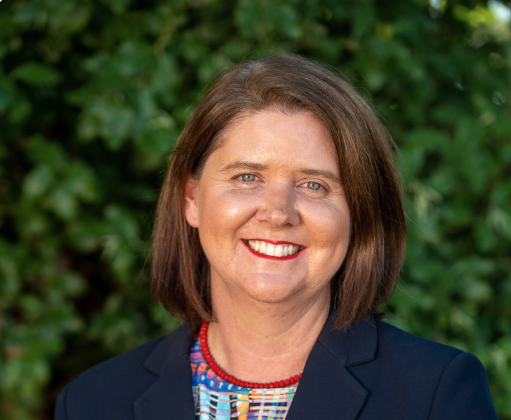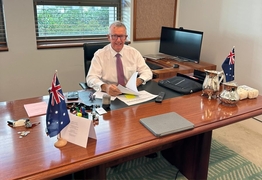Regional votes matter!
Kristin Murdock
15 February 2025, 8:20 PM

Regional New South Wales is home to over two thirds of the state’s population and we need to be listened to, according to The Regional Australia Institute (RAI).
Liz Ritchie, CEO of the RAI said recently that engaging with all leaders, both future and current, on regional Australia’s role within the national agenda is a critical priority.
“It is a chance for all sides of politics to listen to regional voters and to ensure that the promises they take to the next election, aligns with the current needs of regional Australia and contributes to the future prosperity of all Australians,” she said.
With a federal election upcoming, Ms Ritchie said regions need to be an important part of national discussions.
“Key to prioritising regional Australia in the national debate is broad and deep acceptance of the role regional Australia is set to play in our nation’s future,” she said.
“We currently feed the nation, power the nation, and drive the top 10 exports.
"We represent 37 per cent of the population, and for the first time in seven decades, we welcome more city dwellers moving to regions each year, than the opposite direction.
"Record jobs, a lower cost of living, great communities and wide-open green spaces are some of the key reasons two-in-five city dwellers are considering a move to the regions.
"So, what are the settings we require to enable this prosperity?”

Liz Ritchie, CEO of the Regional Australia Institute, said recognising regional Australia’s role within the national agenda is a critical priority.
Member for Barwon, Roy Butler, spends much of his time on the road, visiting all corners of his vast electorate.
He said regions are often overlooked by city-centric politicians, except when it comes to votes.
"Our regions are often the battlegrounds for politics when it comes to the major parties because our regions are the biggest drivers of the NSW economy," Mr Butler said.
"We are home to over a third of the NSW population and produce the food and fibre that clothes and feeds NSW.
“Despite this, successive governments have consistently underinvested in health, education, critical infrastructure, and service delivery for years.
"This has created a divide between urban and rural areas. Policies designed for metropolitan regions often dictate outcomes in the bush.”
Ms Ritchie's address included some challenging questions on issues relevant to Western Plains' residents.
- Are leaders who come from our cities aware of the very different challenges in regional Australia, so they can make decisions that propel regional Australia forward?
- Do they understand the liveability and service challenges this is placing on our regional communities, who were already hampered from multi-generational under-investment?
- Can they even imagine for a moment what it feels like to be told the local GP’s books are closed due to demand with no emergency facility within 300km?
“Parties and politicians who focus on city-centric, one size fits all policy agendas, ignoring the challenges of regional Australia, will ultimately risk votes,” Ms Ritchie said.
Anyone who still believe there aren’t enough votes to matter in the regions haven’t looked under the hood of recent elections,
“At the 2022 Federal election, Labor clinched power by swinging metropolitan seats.
"However, of the 19.5 per cent of seats that swung towards the Liberal and National parties on two party preferred preference, 61 per cent were in regional and rural areas.”
Mr Butler said regions needed to be viewed separately to metro areas.
“I’m working hard to change that through policies and legislation, such as the Regional Communities (Consultation Standards) Bill, which became law last year and sets a minimum standard for consultation between regional communities and government agencies responsible for delivering projects in New South Wales," he said.
"We can’t apply a cookie-cutter approach from the city to our regions; it simply doesn't work and undermines the potential of regional New South Wales."



